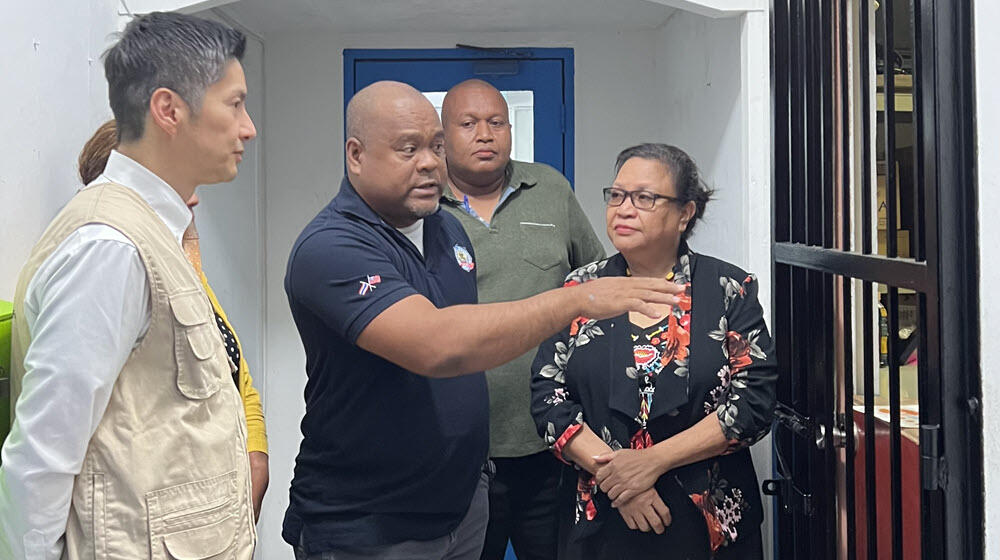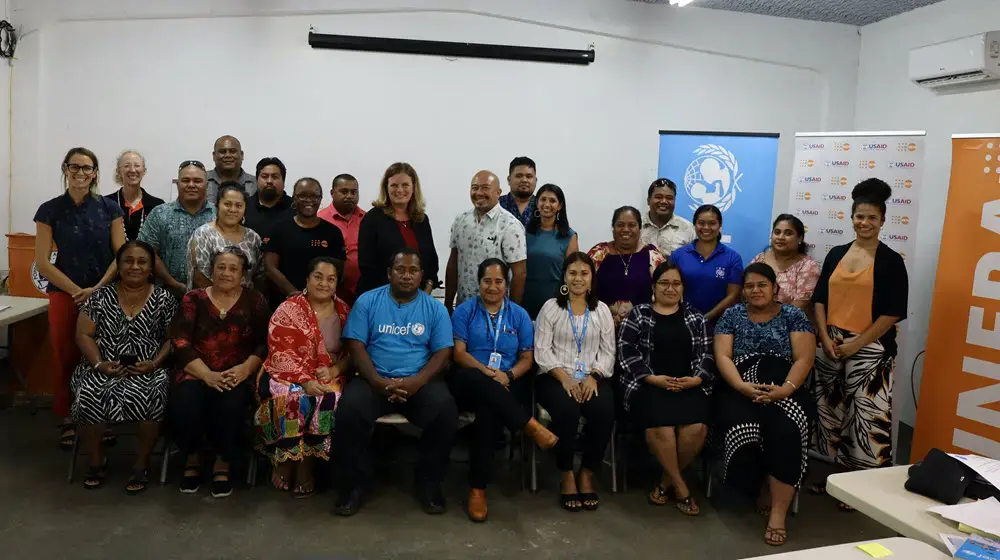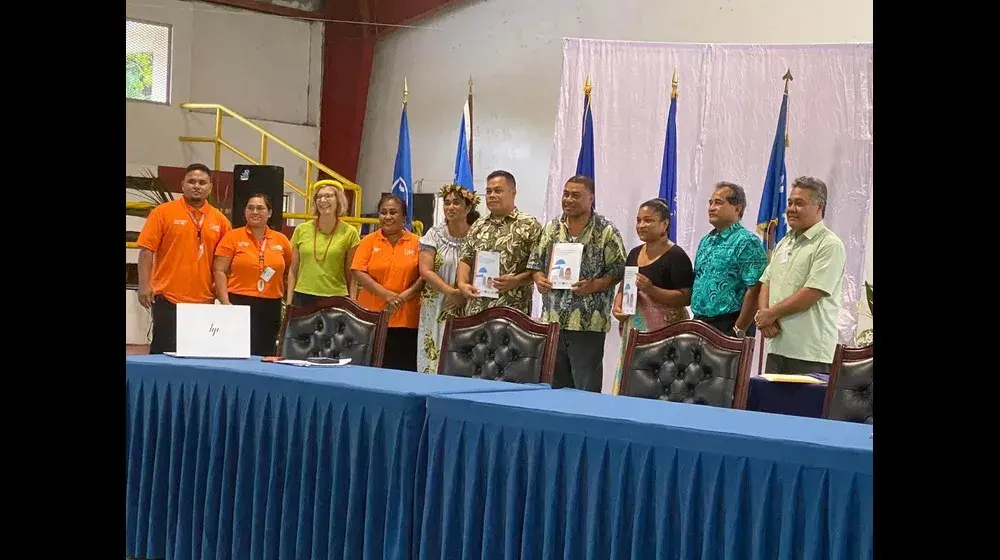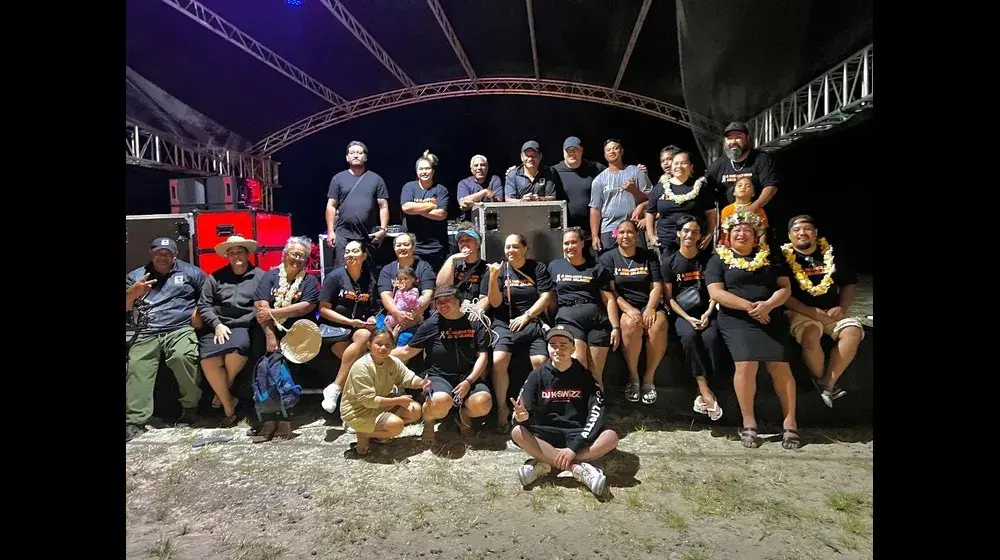KOROR, Palau - The Palau Ministry of Justice Criminal Investigation Division (CID), like other police forces, uses a refrigerator to store evidence that is sensitive to temperature and can degrade if not properly kept in a cold chain. Until a large-scale biological evidence refrigerator was procured and installed in the Evidence Room of the CID headquarters in the capital Koror, with the support of the United Nations Population Fund (UNFPA), CID used to need to store blood, saliva, semen, saliva, and other biological evidence, in a smaller refrigerator at the Belau National Hospital in the Meyuns island, 2.2 kilometers away from CID. “We are grateful to UNFPA for the donation of this bio fridge, since it has helped us maintain the ‘chain of custody’ far more easily and efficiently, of evidence that is crucial in a murder or sexual assault case investigation and prosecution,” says Acting Chief of CID, Detective Lieutenant Mr. John Gabriel.
According to the 2014 Belau Family Health and Safety Study, one out of every four women and girls in Palau (25.2%) reported experiencing sexual and/or physical violence in their lifetime committed by her intimate partner. UNFPA, in consultation with the Vice President and Minister of Justice, Hon. J. Uduch Sengebau-Senior, has been scaling up its support to Palau’s efforts at enhancing responses to gender-based violence (GBV), through training clinicians, nurses and case managers on the health sector response to GBV, and other front-line workers such as statisticians, police, judiciary officials on GBV data collection and analysis, as part of UNFPA Pacific Multi-Country Programme (2023-2027).
In addition, UNFPA with funding support from the European Union - UN Spotlight Initiative, has also procured and donated numerous types of equipment to various government offices that are implementing the Palau Family Protection Act.
“Now that the bio-fridge is collocated in the CID evidence room, it will empower the Palauan women, and men, to report crimes without fear of their cases being compromised due to inadequate evidence handling. It thus helps ensure that justice is served in our country,” says the Vice President & Minister of Justice Hon. Sengebau-Senior.
“UNFPA's support to strengthening Palau’s national capacity to investigate gender-based violence cases, contributes to a safer environment where women's and girls’ rights are upheld and gender equality is advanced,” added Hon. Vice President as she took UNFPA Pacific Director Iori Kato and Head of Micronesia Multi-Country Office Evelyn Adolph to the CID headquarters building on 13 September to show the bio-fridge inside the locked evidence room.
UNFPA Pacific, using its core funding, is planning to assist the Palau Government in further procuring sexual assault evidence collection kits, colposcopes, and other necessary equipment, before the end of this year.
“UNFPA will do all it can to support Pacific island countries to implement the 2023 Revitalised Pacific Leaders Gender Equality Declaration, including through ‘accelerating necessary and innovative actions to prevent and eliminate gender-based violence including domestic violence, which take survivor-cented, whole-of-community and family approaches, while ensuring perpetrators of violence are held accountable for their actions,’ as these will ultimately contribute to a more equitable and just Blue Pacific Continent for all,” underscored UNFPA Pacific Director Kato.








